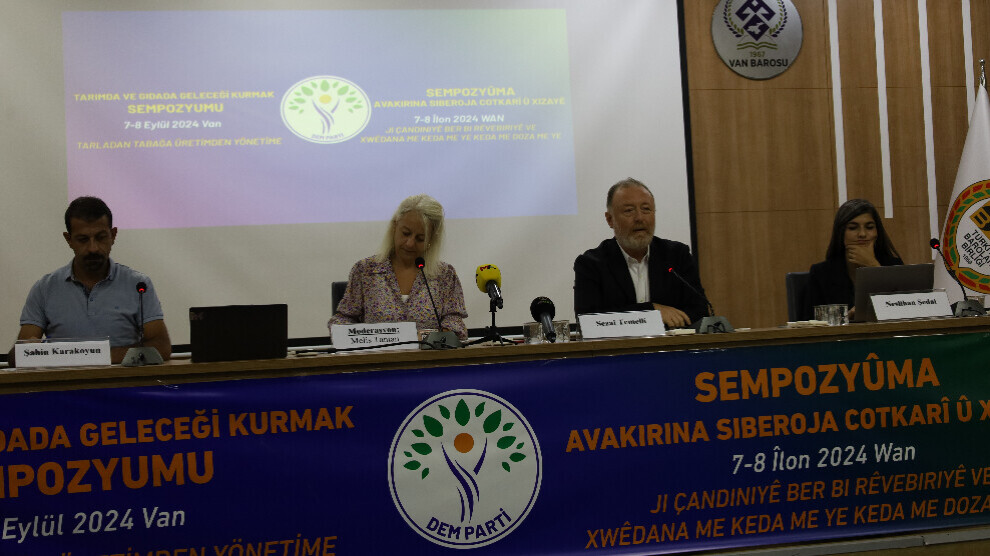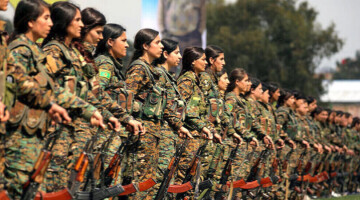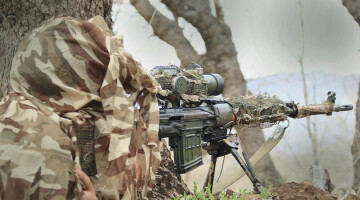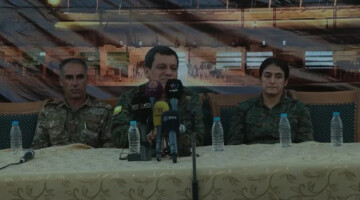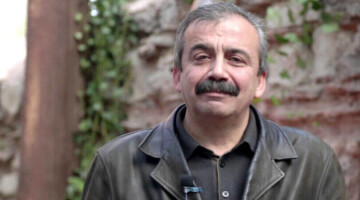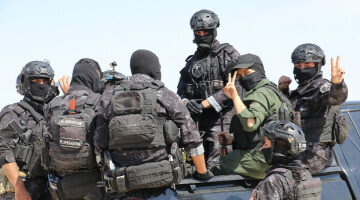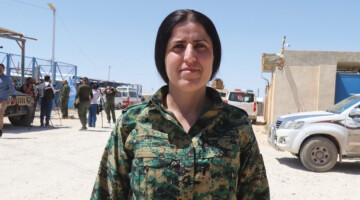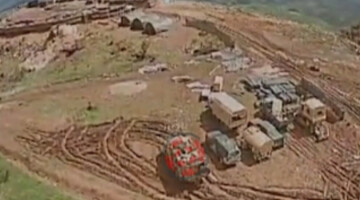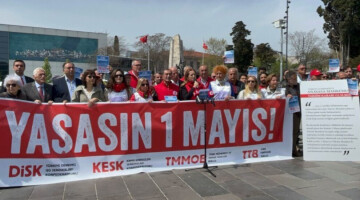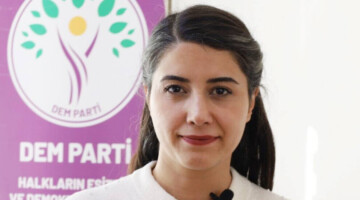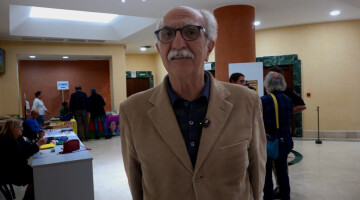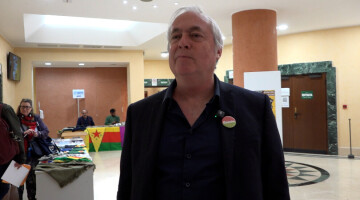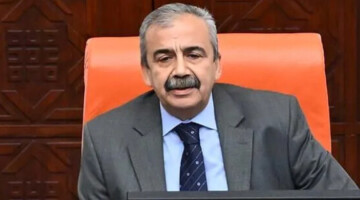Within the scope of the ‘Bread and Justice Meetings’ of the Peoples' Equality and Democracy Party (DEM Party), the Symposium “Building the Future in Agriculture and Food” started in Van. During the two-day symposium, topics such as ‘Political economy of agriculture’, ‘Agricultural policies in Kurdistan in the context of exploitation policies’, ‘What to do, how to do’, ‘What kind of future in agriculture and food; solution proposals’, ‘Shaping the future of agriculture; advantages and disadvantages’ will be discussed.
DEM Party Agriculture Commission Co-spokesperson Rıdvan Turan said, “21 years of AKP policies have made Turkey and Kurdistan unlivable. While the countryside is emptying out in the west of Turkey, we are experiencing this rapidly in Kurdistan. Kurdistan has been cut off from agriculture and production due to a security-based mentality such as the referral of the Kurdish question to the military, forced migration, highland bans, deliberate forest burnings.”
Tülay Hatimoğulları, DEM Party Co-Chair, made the following assessment: “The government narrows production areas. It almost leaves the workers and peasants without land. It is possible to talk about millions of people, that is, more than half of the population, who cannot access the minimum essential needs for human life such as access to food, shelter and housing. This picture is so heavy. People now feel hunger, poverty and the problem of not being able to find shelter down to their bones. The AKP, which has won the title of the party that best implements neoliberal policies in Turkey, has also brought agriculture to the point of extinction.”
'AKP implements special policies in the Kurdish region'
Tülay Hatimoğulları said that the AKP implements special policies in the Kurdish region and added: “Insisting on deadlock on the Kurdish question, the AKP is a party that has continued the traditional state approach to the Kurdish question and applied special policies in the Kurdish region with this insistence. The burning and depopulation of villages have been carried out at such an extreme level that agriculture has faced extinction in Kurdistan at the same time with many methods such as bans on access to highlands. While Turkey was in the position of a country that could export agricultural products, it has now become an importing country.”
Hatimoğulları pointed out that: “Turkey is a paradise for wheat, cereals and cotton. While it was in the position of being a serious exporter country in these areas, it is now unfortunately in the position of a country that imports everything. As the DEM Party, we are extremely determined to resurrect agriculture, which is wanted to be finished, to ensure food security, and to fight against poverty, which affects more than half of the country.”
'People in the Kurdish region are subject to double exploitation'
The DEM Party Co-chair remarked that: “Until today, nearly 4 thousand villages have been evacuated either through burning, torture or other methods. Those engaged in agriculture and animal husbandry in the region have, of course, received their share from the developments in Turkey. But we would never exaggerate if we said that the people here are subject to double exploitation due to the special policies implemented in the region. A scourge like DEDAŞ is present in the region. I think there is no other energy company in Turkey that is on the agenda as much as DEDAŞ.”
Hatimoğulları concluded: “It is possible to get out of this heavy bind that the country is going through today. It is possible with our alternative policies, alternative organisations and united struggle. We will surely succeed.”
After the speeches, the first session of the symposium started.
In the session titled ‘Is another agricultural economy possible?’, DEM Party Group Deputy Chairman Sezai Temelli, Van Metropolitan Municipality Co-Mayor Neslihan Şedal and Agricultural Engineer Şahin Karakoyun made presentations. In the session moderated by Melis Tantan, the economy of agriculture in Kurdistan was discussed.
Stating that the colonisation of Kurdistan is the first move for Turkish capitalism, Temelli said: “All investments and activities in Kurdistan are the result of the capitalist mind. For this reason, they are not creating a self-sufficient agricultural economy here, but a mechanism that liquidates the agricultural economy, labourises the peasants in the agricultural economy, transports cheap labour to the West and enables the transfer of natural resources to the West. What the AKP is doing in Rojava and all parts of Kurdistan is the expansion of colonialism. The confiscation of Kurdistan's resources is part of this policy. For them, the most important way to achieve this is war. If today's government in Turkey is constantly keeping war on the agenda, its eco-politics reveal the point Turkey's capitalism has reached. War and dispossession are at the root of all the exploitation we are experiencing, and the biggest dispossession is being done on the agricultural lands of Kurdistan. Kurdistan is being dispossessed by confiscating the minerals underneath and what lies above it. This is why we must oppose the war. Exploitation is a sine qua non for capitalism. The hinterland of exploitation of capitalism is now Kurdistan. Against all this, it is necessary to say ‘Welcome Mr Öcalan’. Because the democratic autonomy paradigm put forward by Mr Öcalan develops a new life and solution against all this. In the light of this paradigm, other agricultural policies are possible, and we must build it.”
‘The male mentality also targets nature’
Neslihan Şedal stated that it is now essential to build a democratic communal economy and said, “Agriculture is very important for this. It is possible to achieve this again in Mesopotamia, where the first seed was sown by women and the first agriculture was made. Even 25 years ago, we were not far from the life we are talking about and we were living it. A one-year period was spent with great labour. We are talking about a life in which everyone is involved. We defend an ecological life against capitalism, which is produced and institutionalised by the male mind of the state civilisation structure. The agricultural and village revolution is a process formed entirely by the labour of people. While the agricultural and village revolution developed under the leadership of women, this was a democratic, ecological form of life without hierarchy. This is what we are trying to develop. While the male mentality targets women, it also targets nature. What makes a society a society is its production and political economy. But people were detached from this. As a result, people were separated from the land and production.”
Agricultural Engineer Şahin Karakoyun, who made a presentation in Kurdish, explained the current stage of agricultural policies in Kurdistan and the world.
The session ended with a question and answer session.

